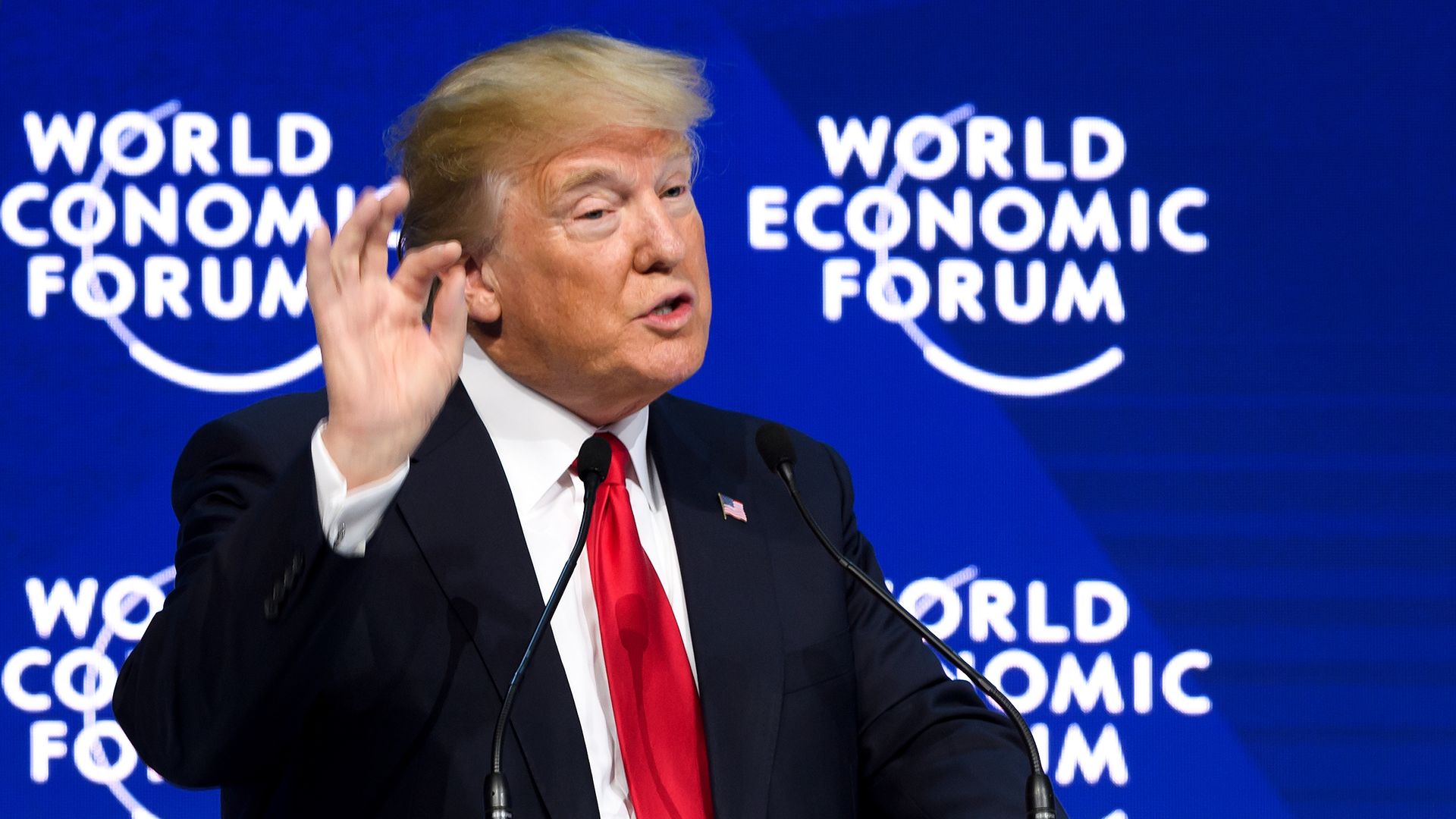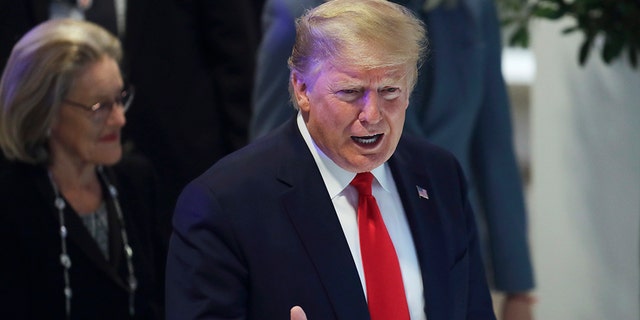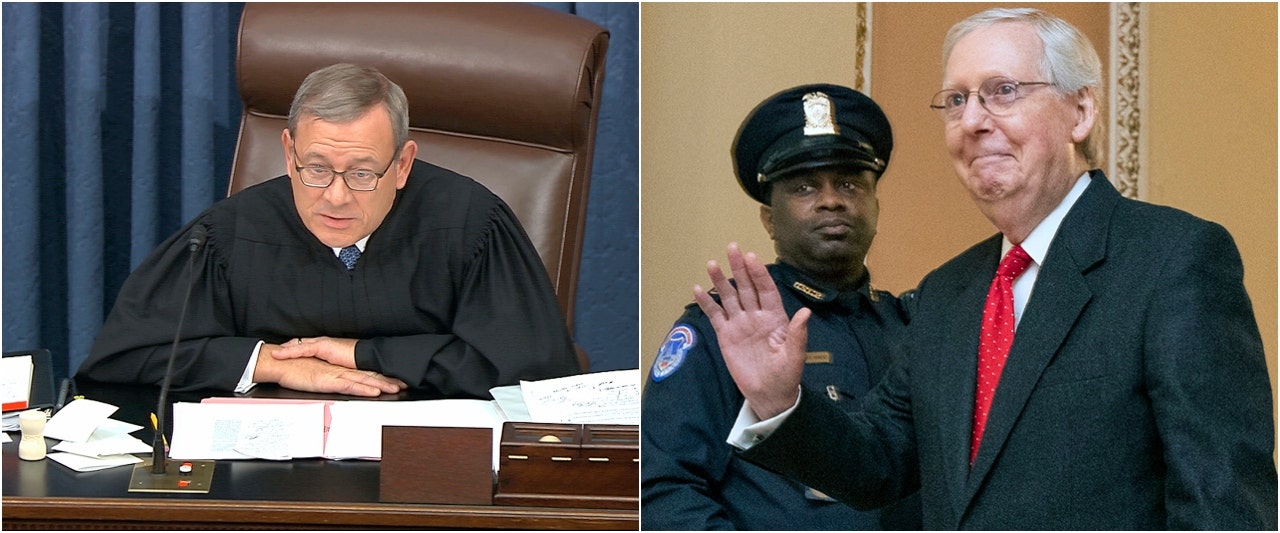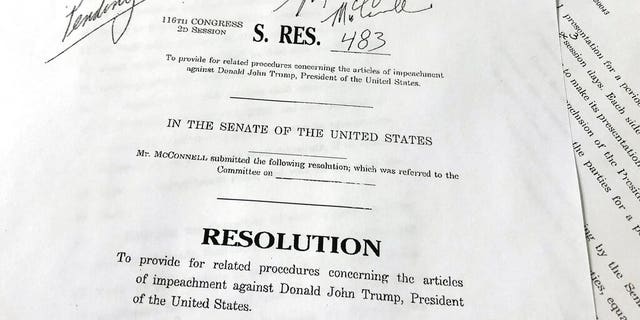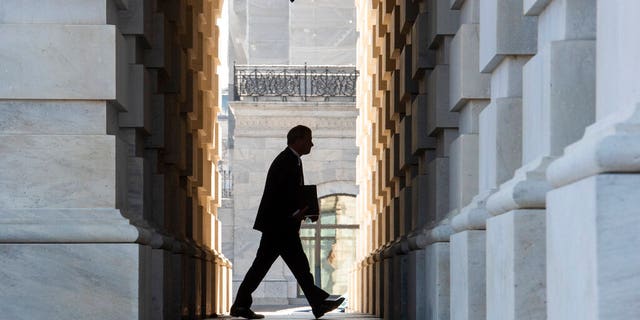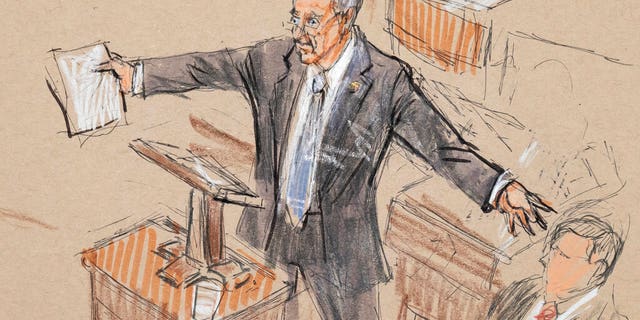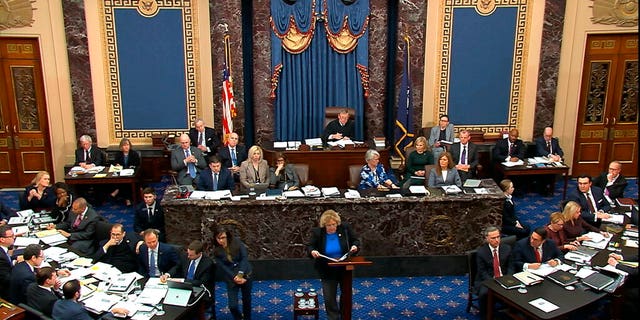
Joe Biden, the 2020 Democratic presidential frontrunner, said Wednesday he wants "no part" of a witness swap reportedly being discussed by some members of his own party.
Under the hypothetical deal, Democrats would reportedly offer up Biden or his son Hunter Biden to testify at President Trump's Senate impeachment trial in return for testimony from a Republican figure, such as ex-national security adviser John Bolton.
The Washington Post quoted the former vice president admitting that it was "not an irrational question" but said Trump's trial was a "constitutional issue." He said he does not want to see the trial turn into a "farce or some kind of political theater."
Biden, while campaigning in Iowa, denied that talks of a witness swap were taking place. When told by a Post reporter that the topic was being discussed, he responded, "No they're not," the paper reported.
A witness swap that would result in Hunter Biden and Bolton testifying would be the most dramatic development in the trial thus far. At the heart of the impeachment trial is Trump's July 25, 2019 call with Ukraine President Volodymyr Zelensky. Trump said the call was focused on corruption in Kiev and raised Biden as an example.
Hunter's position on the board of the Ukrainian gas company Burisma while his father was vice president has been a rallying point for Republicans as they try to defend Trump against impeachment charges of abuse of power and obstruction of Congress.
Democrats see Bolton as a potential witness who could provide first-hand testimony linking Trump's decision to withhold U.S. aid from Ukraine directly to the country's willingness to investigate the Bidens.
Fiona Hill, a former top White House expert on Russia, testified in November that Bolton shared her concern about what she saw as a push to get Ukraine to conduct the investigations.
She testified in front of the House Intelligence Committee and recalled Bolton expressing his own concerns about the push and told her to tell National Security Council lawyer John Eisenberg that he does not want to be a part of this "drug deal."
"He was saying that sarcastically, of course, I mean, just to be clear. Actually, he was angry, but he was also sarcastic. I mean — he wasn’t inferring that they were cooking up an actual drug deal in the War Room," she said.
Trump and Zelensky have both denied any quid pro quo. Trump called the entire impeachment process a political witch hunt. There is no evidence of wrongdoing by Biden or his son.
The Post reported that some of the Democrats taking part in the discussion about a potential witness swap believe Biden could actually benefit politically from testifying because it would give him a chance to deliver a statesmanlike performance.
Both Rep. Adam Schiff, D-Calif., and Senate Minority Leader Chuck Schumer have spoken out against the potential of a witness swap.
"Trials aren't trades for witnesses," Schiff said.
Fox News' Brooke Singman and Adam Shaw and the Associated Press contributed to this report.
Under the hypothetical deal, Democrats would reportedly offer up Biden or his son Hunter Biden to testify at President Trump's Senate impeachment trial in return for testimony from a Republican figure, such as ex-national security adviser John Bolton.
The Washington Post quoted the former vice president admitting that it was "not an irrational question" but said Trump's trial was a "constitutional issue." He said he does not want to see the trial turn into a "farce or some kind of political theater."
Biden, while campaigning in Iowa, denied that talks of a witness swap were taking place. When told by a Post reporter that the topic was being discussed, he responded, "No they're not," the paper reported.
A witness swap that would result in Hunter Biden and Bolton testifying would be the most dramatic development in the trial thus far. At the heart of the impeachment trial is Trump's July 25, 2019 call with Ukraine President Volodymyr Zelensky. Trump said the call was focused on corruption in Kiev and raised Biden as an example.
Hunter's position on the board of the Ukrainian gas company Burisma while his father was vice president has been a rallying point for Republicans as they try to defend Trump against impeachment charges of abuse of power and obstruction of Congress.
Democrats see Bolton as a potential witness who could provide first-hand testimony linking Trump's decision to withhold U.S. aid from Ukraine directly to the country's willingness to investigate the Bidens.
Fiona Hill, a former top White House expert on Russia, testified in November that Bolton shared her concern about what she saw as a push to get Ukraine to conduct the investigations.
She testified in front of the House Intelligence Committee and recalled Bolton expressing his own concerns about the push and told her to tell National Security Council lawyer John Eisenberg that he does not want to be a part of this "drug deal."
"He was saying that sarcastically, of course, I mean, just to be clear. Actually, he was angry, but he was also sarcastic. I mean — he wasn’t inferring that they were cooking up an actual drug deal in the War Room," she said.
Trump and Zelensky have both denied any quid pro quo. Trump called the entire impeachment process a political witch hunt. There is no evidence of wrongdoing by Biden or his son.
The Post reported that some of the Democrats taking part in the discussion about a potential witness swap believe Biden could actually benefit politically from testifying because it would give him a chance to deliver a statesmanlike performance.
Both Rep. Adam Schiff, D-Calif., and Senate Minority Leader Chuck Schumer have spoken out against the potential of a witness swap.
"Trials aren't trades for witnesses," Schiff said.
Fox News' Brooke Singman and Adam Shaw and the Associated Press contributed to this report.








